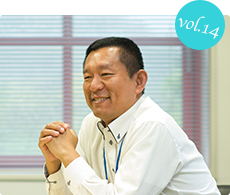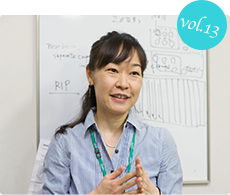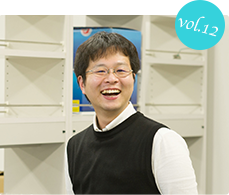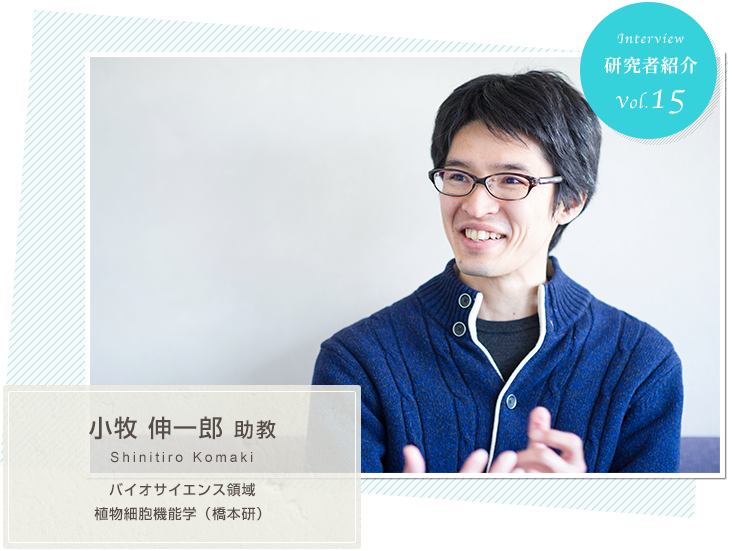
![]()
D. from Nara Institute of Science and Technology in 2010. D. (Bioscience). After working as a researcher at the RIKEN Yokohama Institute, a researcher at the Centre National de la Recherche Scientifique (France), and a researcher at the University of Hamburg (Germany), he has been in his current position since July 2017. He specializes in plant cell biology and molecular genetics. He is currently working on spindle checkpoints and genome duplication.
Path to becoming a researcher
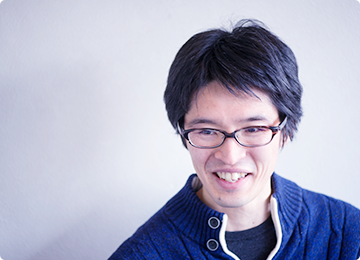
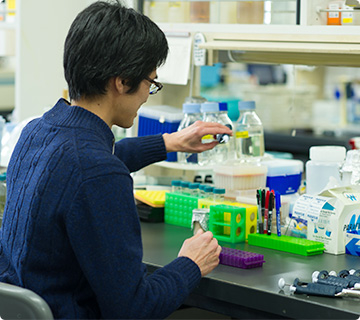
I went to university when genetic engineering, including cloned sheep, was in its heyday. When I was in my third year of college and had to choose a lab, I visited a cattle cloning lab, an insect classification lab, and a botany lab, but what I remember most was a bin full of plants. Unlike animals, which require special conditions for cloning, with plants you just cut them and the same thing grows back. Plants are naturally easy to clone. I thought it was very interesting to see a jar full of the same individuals growing just by cutting them, and that was when I first became interested in plants. After working in a plant-related laboratory, I entered the master's program without hesitation, and then entered the Ph.D. program at NAIST after my advisor advised me to go to a well-equipped place if I wanted to become a doctor.
D. program, students can participate in overseas English language training and overseas laboratory internships, for which the university provides financial support for travel and living expenses. My generation was the first to do so, and I experienced participating in research experiments and discussions with faculty and students in the Department of Biological Sciences at the University of California, Davis in the United States. At that time, I thought it would be very interesting to study abroad. I can say that it changed my life. The most important thing was that I felt I could do something even with my poor English. I am not a good English speaker by any means, but I thought I could manage to communicate with others. With this feeling, I joined Dr. Keiko Sugimoto's lab in the Cell Function Research Team at the RIKEN Center for Sustainable Resource Science.
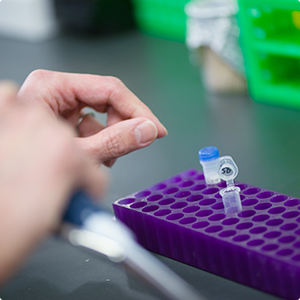
More than half of the lab members were from overseas, and the language spoken was English. During my tenure, I heard that a postdoctoral position was available at a university in Germany, and I wanted to go there immediately. My wife had to stay in Japan because she had a job, and we did not see our child until he was three and a half years old. My wife had no relatives nearby, and I think it was very difficult for her to work and raise the child. During the last six months of my stay in Germany, my wife also became a postdoctoral fellow at my university and moved to Germany with our child, so I was thinking of staying in Germany, but there was an open position at our university and I returned to Japan.
Daily schedule
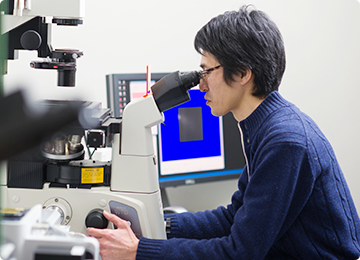
My wife is in charge of cooking dinner, but otherwise she runs the washing machine and I take in the laundry and fold it. I put everything in the washing machine, so she asks me not to. On the weekends, I play with the kids and go shopping for the week. I didn't know this before I had children, but on weekends there are events for young children in different places in the community, and my family of three sometimes attends.
Support for researchers needed at NAIST
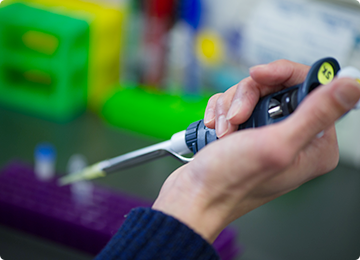
In the future, even after my children finish preschool, I will have to pick them up from school during the early grades, so I think my lifestyle will not change from now. I understand that the Academic Assistant System can be used until the child enters the third grade of elementary school, and I hope that you will continue to support me. In addition, the amount of competitive funding that an assistant professor like me can receive is not large, and even the Basic C Grant-in-Aid for Scientific Research is about 1 million yen per year, which would almost disappear if it were applied to the personnel expenses for assistants. Without assistants, experiments would not progress at all, so I am grateful to be able to use this system.
Currently, the Academic Assistant System has a three-year limit, but I think that even after three years, assistant professors remain assistant professors. Unlike microorganisms, plants grow slowly and need at most three months to complete one generation. It is difficult to tell them to continue the experiment somehow to meet the upper time limit. I would like to see this system continue for a long time, but I also wonder if the upper limit period could be made a little longer.
But I think it depends on the family whether the burden of childcare after birth is heavier on men or women.
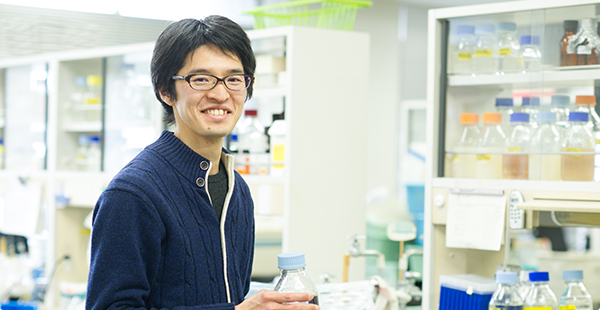
Plant Cell Functional Biology (Hashimoto Lab.)
(March, 2019)

-
2018.6 updated
Division of Information Science
-
2018.6 updated
Division of Biological Science
-
2018.6 updated
Division of Biological Science






